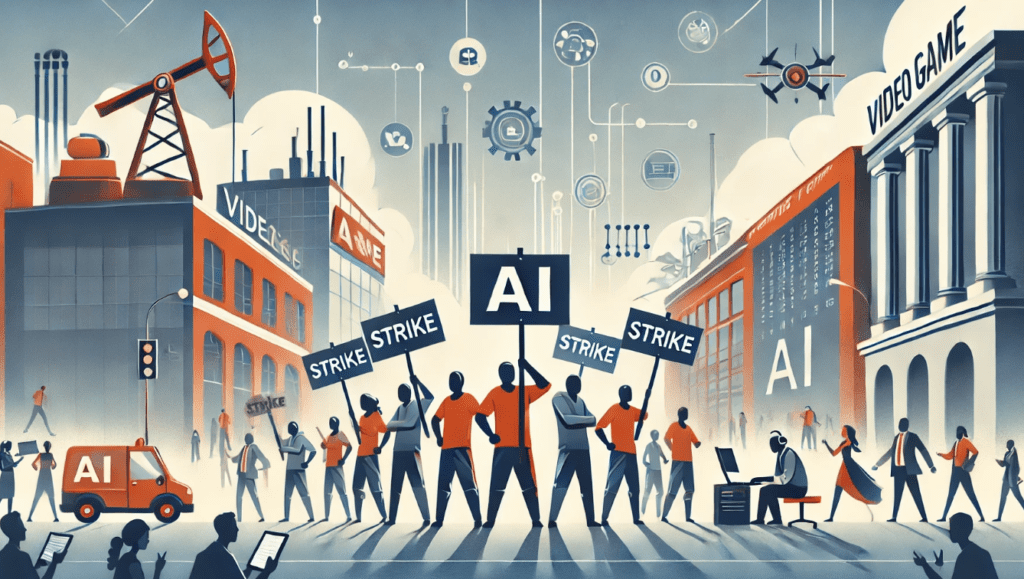The video game actor strike has entered its second week with no resolution in sight. Both sides express willingness to negotiate, but key issues over AI protections remain unresolved.
The Strike’s Genesis
SAG-AFTRA, the union representing about 160,000 actors and performers, initiated the strike on July 26 after negotiations with major video game publishers broke down. The central issue revolves around the use of artificial intelligence (AI) in video game productions and the extent of protections for actors.
Limited AI Protections
According to Ray Rodriguez, SAG-AFTRA’s Chief Contract Officer, the video game studios’ proposed AI protections were limited and only extended to voice performers, leaving out other key roles such as stunt, movement, and creature performers. These roles often do not involve the performer’s voice but are crucial to the production.
“There are multiple open issues on the subject of AI,” Rodriguez stated. “Producers were only interested in offering protections to voice performers and not to on-camera performers.”
He further explained that the protections offered were not substantial enough. For instance, a digital replica of a performer must be identifiable to qualify for protection under the current terms. This caveat undermines protections since characters in video games often do not resemble the performers providing the motion or voice work.
Broader Implications
Rodriguez highlighted the broader implications of AI misuse, such as the unauthorized use of likenesses and the potential spread of misinformation through AI-generated deep fakes. “This is a real existential problem for performers, but it’s an existential problem for all of us,” he noted.
Publishers’ Response
Video game publishers, including Activision Productions, Electronic Arts Productions, Epic Games, and Warner Bros. Games, expressed disappointment at SAG-AFTRA’s decision to strike. They claim to have found common ground on 24 out of 25 proposals, including significant wage increases and safety provisions.
“Our offer is directly responsive to SAG-AFTRA’s concerns and extends meaningful AI protections that include requiring consent and fair compensation to all performers,” a spokesperson for the publishers stated. “These terms are among the strongest in the entertainment industry.”
Historical Context and Ongoing Negotiations
This strike mirrors last year’s Hollywood strike, where union members protested against the Alliance of Motion Picture and Television Producers (AMPTP) over generative AI issues. That strike concluded in November with new AI protections, although not all members were satisfied with the outcome. Voice actors, in particular, felt their voices were not adequately represented in the agreement with Replica Studios.
Rodriguez affirmed that SAG-AFTRA is open to resuming negotiations. “Negotiations don’t stop just because you’re on strike—in fact, the only way to come off of strike is to reach a negotiated resolution,” he said.
Both SAG-AFTRA and the video game publishers remain ready to return to the bargaining table, but significant gaps in AI protections must be bridged. The union aims to ensure comprehensive safeguards for all types of performers involved in video game production, while publishers argue they have already made considerable concessions.
As the strike continues, the impact on upcoming video game releases and the broader industry remains uncertain. The resolution will likely hinge on finding a middle ground that addresses the union’s concerns about AI while allowing publishers to utilize emerging technologies effectively.












